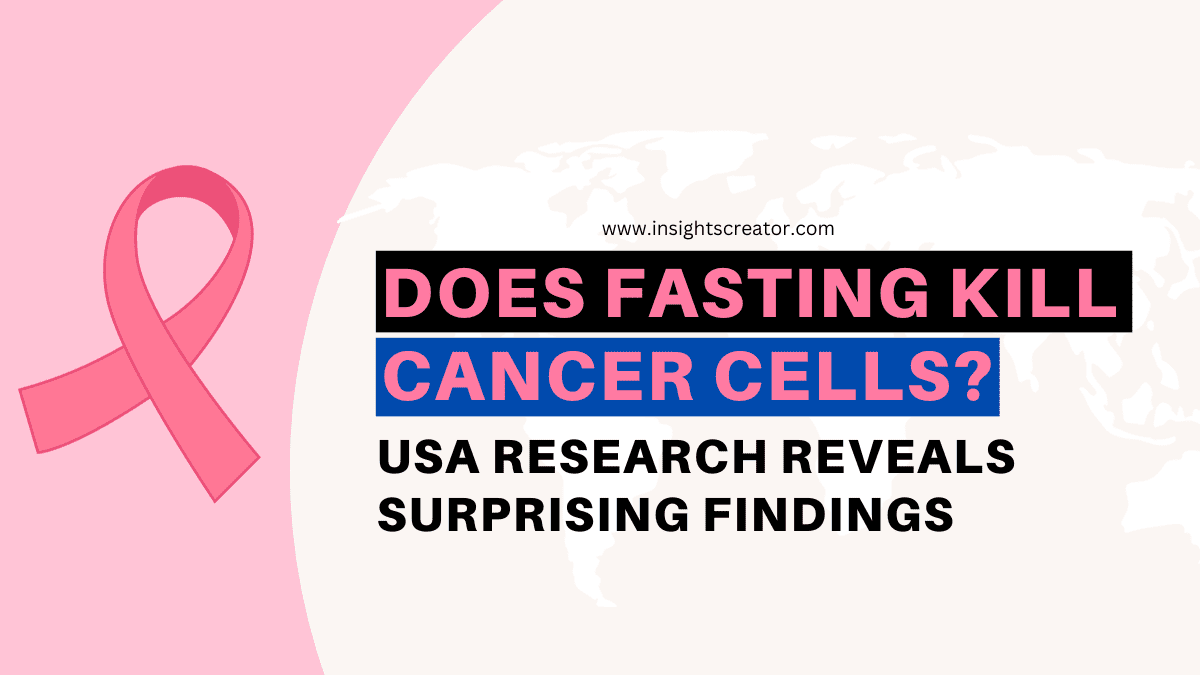Contents
Introduction
Cancer, a complex and enigmatic disease, is one of the leading causes of death worldwide. Despite significant advancements in medical research and treatment options, finding innovative approaches to combat cancer remains a top priority. In recent years, a fascinating concept has gained attention – the potential of fasting to kill cancer cells. In this article, we will delve into the emerging field of research surrounding fasting and cancer treatment in the USA. Join us as we explore the intriguing connections between fasting and cancer therapy.
“Let food be thy medicine, and medicine be thy food.” – Hippocrates

The Science Behind Fasting and Cancer
Fasting, a practice dating back centuries, involves abstaining from food intake for a specific period. While fasting has been primarily associated with spiritual or religious practices, scientists have been unraveling its potential therapeutic benefits, including cancer treatment.
You May Read
How to Protect Ourselves from Severe Air Pollution
How Does Fasting Impact Cancer Cells?
Fasting triggers a cascade of physiological changes in the body. When deprived of nutrients, the body’s metabolism shifts, utilizing stored glucose and fats as sources of energy. Cancer cells, characterized by their uncontrolled growth and reliance on glucose, face a quandary in the face of fasting.
Studies conducted across various US research institutes have indicated that fasting can significantly affect cancer cells while sparing healthy cells. The metabolic stress induced by fasting creates a hostile environment for cancer cells, leading to increased cellular damage and reduced viability.
Autophagy: A Key Mechanism
Autophagy, a self-cannibalization process, plays a vital role in the fasting-cancer relationship. During fasting, the body undergoes autophagy, wherein damaged or unnecessary cellular components are recycled to provide crucial building blocks for the body’s function. This process hinders the survival and proliferation of cancer cells, as they heavily depend on a constant supply of resources.
Researchers from renowned institutions such as the National Cancer Institute and the University of California have uncovered evidence suggesting that fasting enhances the efficacy of cancer treatments, such as chemotherapy and radiation therapy. By promoting autophagy, fasting sensitizes cancer cells to treatment, rendering them more susceptible to destruction.
Fasting and the Immune System
Boosting Immune Function
The immune system plays a crucial role in recognizing and eliminating abnormal cells, including cancer cells. Research conducted at prestigious US universities, including Harvard and Stanford, indicates that fasting can bolster the immune system’s efficiency. As fasting triggers the body’s regenerative processes, it prompts the production of new immune cells and enhances their overall function. A robust immune system enables the identification and eradication of cancer cells, contributing to a more effective anti-cancer response.
Reduced Inflammation
Chronic inflammation is closely linked to the development and progression of various diseases, including cancer. Fasting has been found to possess anti-inflammatory properties, reducing inflammation levels in the body. By curbing inflammation, fasting helps create an inhospitable environment for cancer cells, hindering their growth and spread.
Noteworthy Findings and Studies
Research Studies Conducted in the USA
Several notable studies conducted in the USA have shed light on the promising potential of fasting in cancer treatment.
- A Study by the University of Southern California (USC): This study found that fasting for as little as two days before undergoing chemotherapy protected healthy cells from damage while making cancer cells more susceptible to the treatment. The study emphasized the importance of fasting alongside conventional cancer treatments.
- A Study by the National Institute on Aging (NIA): This study discovered that intermittent fasting (restricting food intake for specific periods) reduced the incidence of cancer and extended the lifespan of lab mice. These findings paved the way for further investigations into the effects of fasting on human cancer treatment.
External Resources
For readers interested in delving deeper into the subject, the following articles and studies provide valuable insights:
- Research study by the University of Southern California on fasting and chemotherapy
- Study on calorie restriction and autophagy by the National Cancer Institute
- Research article on fasting and the immune system by Harvard Medical School
Conclusion
While no definitive cure for cancer exists, exploring innovative approaches to complement existing treatments is crucial. Fasting, once a practice primarily associated with spirituality, has emerged as a promising strategy in the fight against cancer. Researchers across leading US institutions have uncovered intriguing connections between fasting and the destruction of cancer cells, enhancing the effectiveness of conventional therapies and boosting the immune system. As the scientific community continues to delve into this field, it is essential to approach fasting as a supplementary approach, guided by healthcare professionals. By unraveling the mysteries of fasting, we inch closer to new frontiers in cancer treatment and offer hope to millions.
“Fasting is the greatest remedy – the physician within.” – Paracelsus

